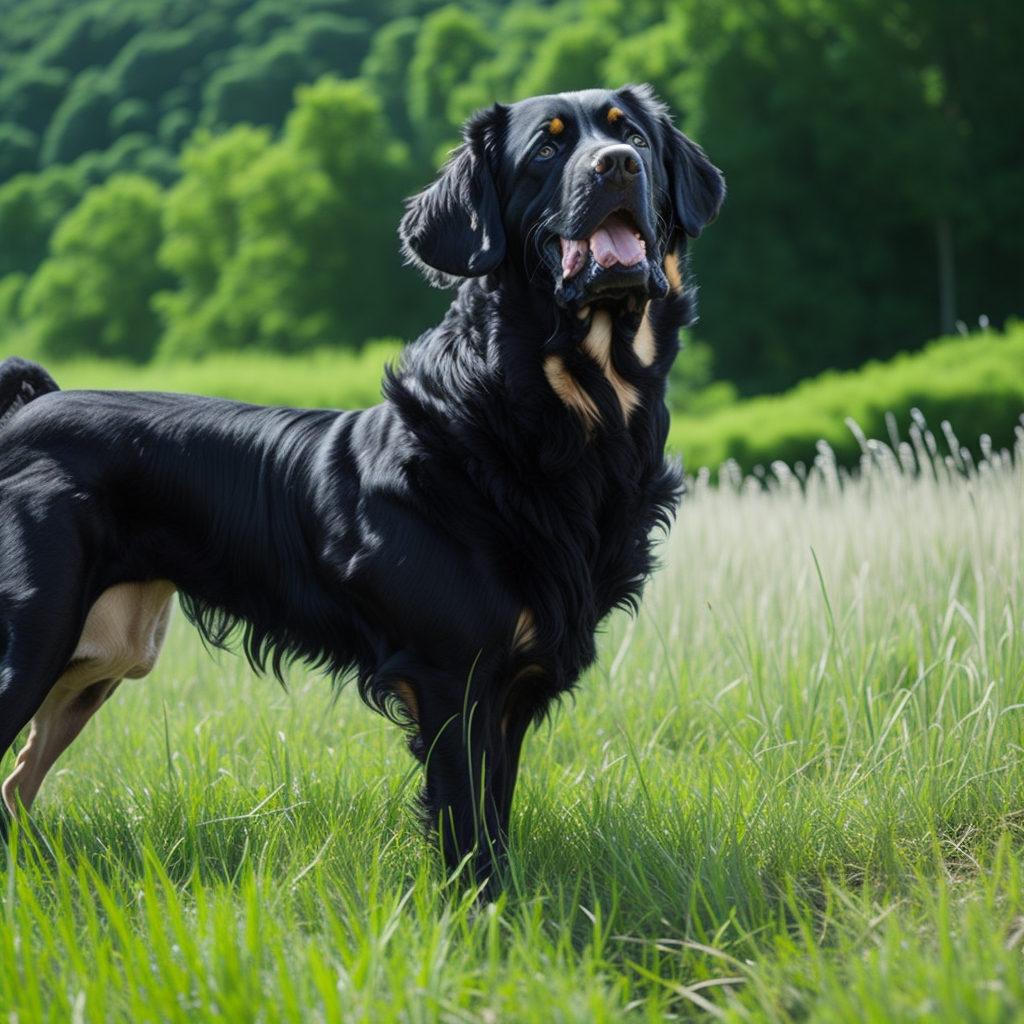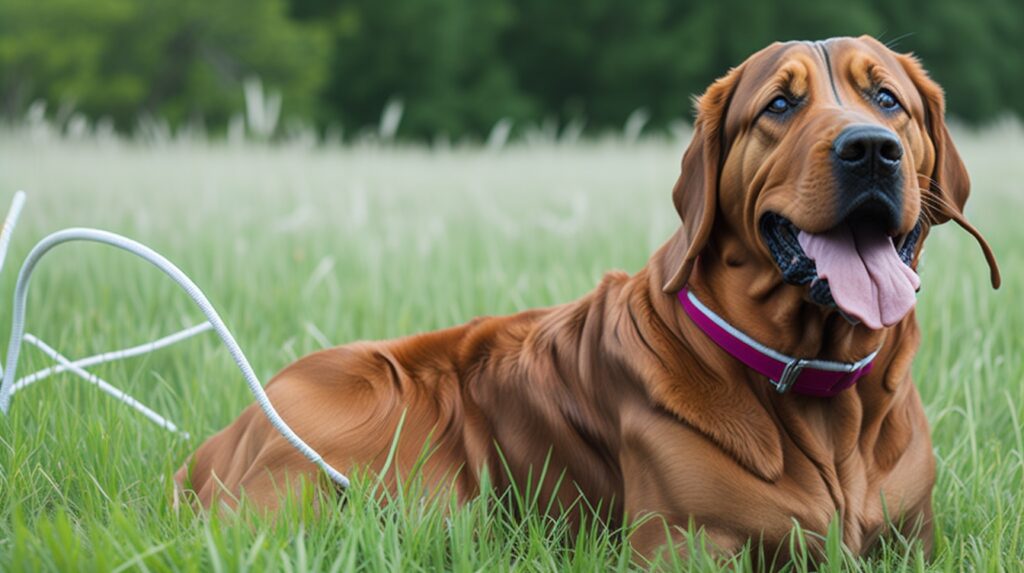The lymphatic system plays a vital role in the overall health and immune system function in both humans and dogs. Lymph nodes are small, bean-shaped organs that make up an essential part of this system. Awareness of your dog’s lymph nodes and their functions can help you better understand potential health issues that may arise and how to address them effectively. This article will discuss the role of lymph nodes in dogs, the common issues that can affect them, and the signs and treatment options for various ailments.

Contents
- 1 Lymph Nodes in Dogs: A Brief Overview
- 2 Table of Contents
- 3 1. What are Lymph Nodes?
- 4 2. Anatomy of Dog’s Lymphatic System
- 5 3. Functions of Dog’s Lymph Nodes
- 6 4. Common Issues with Lymph Nodes
- 7 5. Importance of Regular Veterinary Checks
- 8 6. How to Identify Swollen Lymph Nodes
- 9 7. Treatment Options for Lymph Node Issues
- 10 8. Preventive Measures for Lymph Node Health
- 11 9. Dietary and Lifestyle Considerations
- 12 10. Conclusion
- 13 FAQs
Lymph Nodes in Dogs: A Brief Overview
Lymph nodes are small glands that produce and house immune cells that combat infections and other diseases. They are located throughout the body, including the neck, chest, abdomen, and groin areas. The lymphatic system is responsible for filtering the lymph, a colorless fluid that contains white blood cells and circulates throughout the body through a network of vessels.
Lymph nodes operate as checkpoints and filtration centers, catching harmful substances like bacteria and cancerous cells before they can reach other parts of the body. When a dog encounters an infection or inflammation, the lymph nodes may swell as they work to produce more immune cells and protect the body.
Lymph nodes are an essential part of a dog’s immune system, yet many pet owners may not fully understand their function and significance. In this comprehensive guide, we’ll delve into the world of dog’s lymph nodes, exploring their role in maintaining your furry friend’s health and well-being.
Table of Contents
| Sr# | Headings |
|---|---|
| 1. | What are Lymph Nodes? |
| 2. | Anatomy of Dog’s Lymphatic System |
| 3. | Functions of Dog’s Lymph Nodes |
| 4. | Common Issues with Lymph Nodes |
| 5. | Importance of Regular Veterinary Checks |
| 6. | How to Identify Swollen Lymph Nodes |
| 7. | Treatment Options for Lymph Node Issues |
| 8. | Preventive Measures for Lymph Node Health |
| 9. | Dietary and Lifestyle Considerations |
| 10. | Conclusion |

1. What are Lymph Nodes?
Lymph nodes are small, bean-shaped organs located throughout the body, including the neck, armpits, groin, and internal organs. They play a crucial role in the body’s immune system by filtering lymph fluid and trapping harmful substances like bacteria, viruses, and abnormal cells.
2. Anatomy of Dog’s Lymphatic System
The lymphatic system is a network of vessels, nodes, and organs that transport lymph fluid throughout the body. In dogs, lymph nodes are strategically positioned along the lymphatic vessels, acting as checkpoints to monitor and filter the lymphatic fluid.
3. Functions of Dog’s Lymph Nodes
Dog’s lymph nodes serve several vital functions, including filtering lymph fluid, trapping and destroying pathogens, producing white blood cells, and initiating an immune response when foreign invaders are detected.
4. Common Issues with Lymph Nodes
Swollen lymph nodes, infections, inflammation, and cancer are common issues that can affect a dog’s lymphatic system. These conditions may cause discomfort, pain, and other symptoms that require prompt veterinary attention.
5. Importance of Regular Veterinary Checks
Regular veterinary check-ups are essential for monitoring your dog’s lymph nodes and overall health. Your veterinarian can conduct physical examinations, diagnostic tests, and screenings to detect any abnormalities or underlying health issues early on.
6. How to Identify Swollen Lymph Nodes
Swollen lymph nodes are often palpable as firm, round masses under the skin. Common areas to check for swollen lymph nodes in dogs include the neck, armpits, and groin. If you notice any lumps or bumps, consult your veterinarian for further evaluation.
7. Treatment Options for Lymph Node Issues
Treatment for lymph node issues varies depending on the underlying cause. Infections may require antibiotics or antifungal medications, while cancerous lymph nodes may necessitate surgery, chemotherapy, or radiation therapy.
8. Preventive Measures for Lymph Node Health
Maintaining your dog’s overall health through proper nutrition, regular exercise, and preventive care can help support lymph node function and reduce the risk of lymphatic system disorders. Additionally, avoiding exposure to toxins and environmental pollutants is crucial for lymph node health.
9. Dietary and Lifestyle Considerations
A balanced diet rich in essential nutrients, vitamins, and antioxidants is essential for supporting your dog’s immune system and lymphatic health. Consider incorporating immune-boosting ingredients like omega-3 fatty acids, probiotics, and vitamin C into your dog’s diet.
10. Conclusion
Understanding the importance of dog’s lymph nodes and taking proactive steps to support their health is essential for ensuring your furry friend leads a happy and healthy life. By staying informed, attentive, and proactive, you can help safeguard your dog’s lymphatic system and overall well-being.
FAQs
- Can dogs live without lymph nodes?
No, dogs cannot live without lymph nodes as they play a vital role in the body’s immune response and overall health. - What causes swollen lymph nodes in dogs?
Swollen lymph nodes in dogs can be caused by infections, inflammation, immune system disorders, and cancer. - Are swollen lymph nodes in dogs always a sign of cancer?
No, swollen lymph nodes in dogs can be caused by various factors, and not all cases indicate cancer. However, any unexplained swelling should be evaluated by a veterinarian. - How are lymph node issues diagnosed in dogs?
Lymph node issues in dogs are typically diagnosed through physical examination, blood tests, imaging studies (such as ultrasound or X-rays), and sometimes, biopsy. - Can I prevent lymph node issues in my dog?
While not all lymph node issues can be prevented, maintaining your dog’s overall health, providing proper nutrition, regular exercise, and preventive veterinary care can help reduce the risk.


